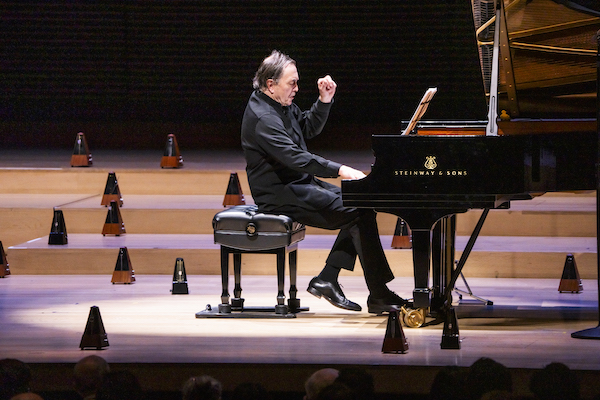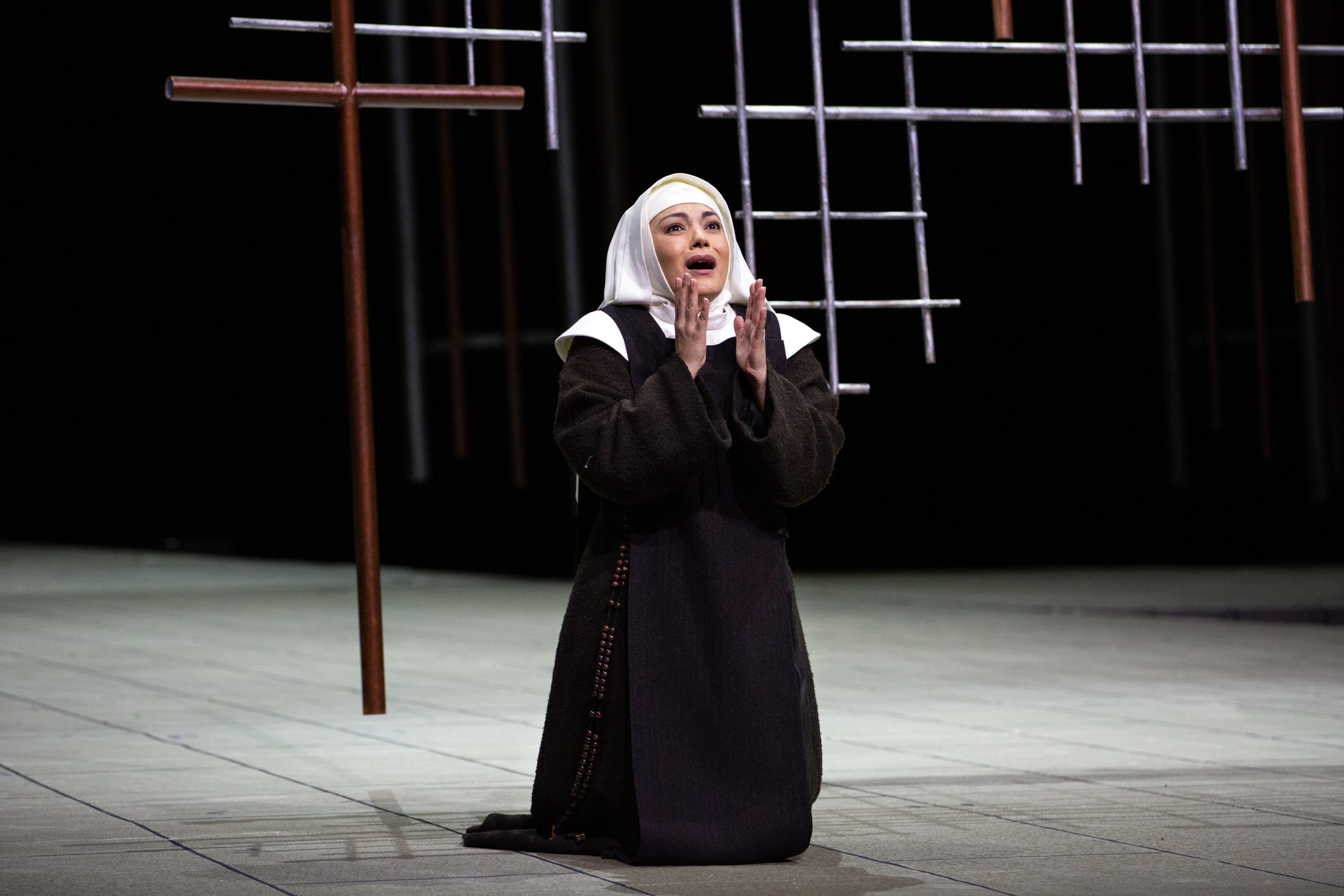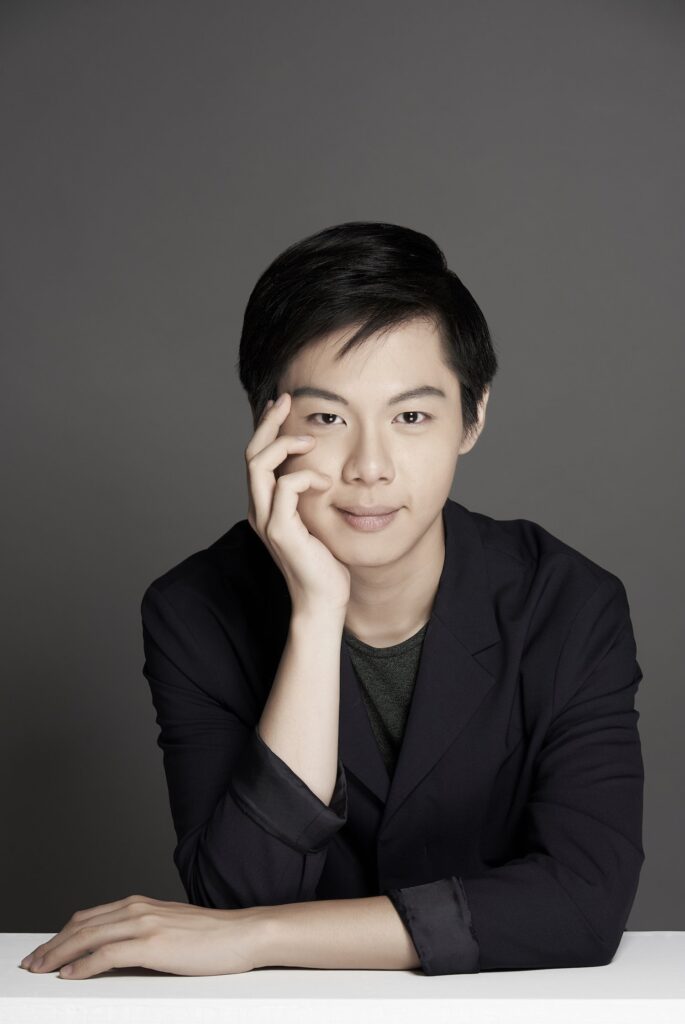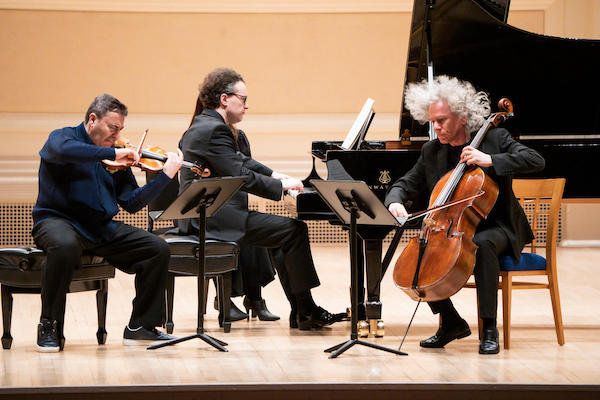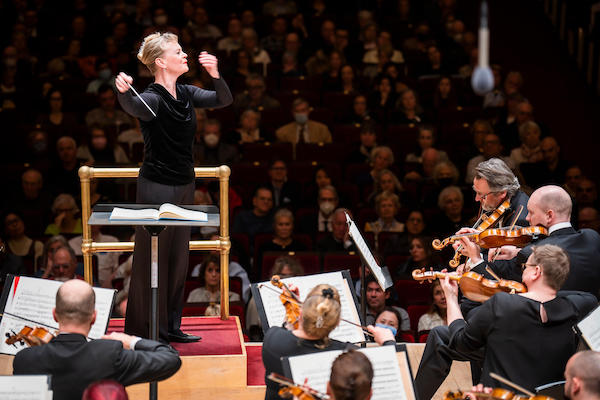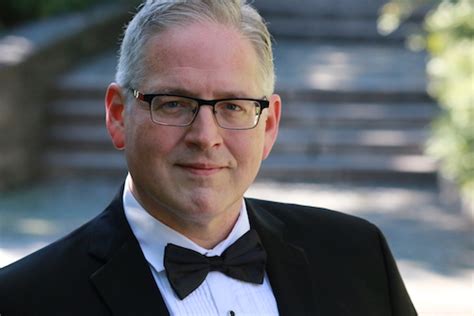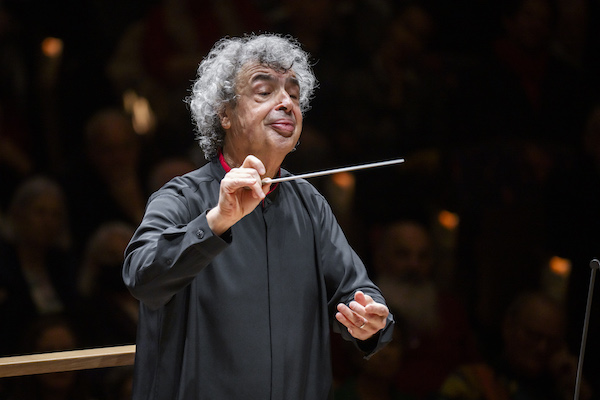Top Ten Performances of 2023
1. Pierre-Laurent Aimard in music of Ligeti, Beethoven, Chopin and Debussy.
This concert was a perfect reminder, in György Ligeti’s centennial year, of how consequential he was as a composer. Pierre-Laurent Aimard displayed this not only through extraordinary pianism but by mixing Ligeti with his peers and realizing an ideal that the contemporary classical scene aspires to but rarely achieves—making the past a living part of the present, and showing how much greatness there is in our own time. (GG)

How long can the Chinese pianist go on topping herself with one-of-a-kind musical events? This year it was performing all of Rachmaninoff’s music for piano and orchestra—four concertos and the Rhapsody on a Theme of Paganini—in one January afternoon (and evening) at Carnegie Hall. The marvel was not just Wang’s getting through it, but the vitality and insight she brought to every bar of the music. Any of these five performances (and the five dresses she wore) would have been the highlight of a conventional concert program. With Yannick Nézet-Séguin on the podium, the Philadelphians’ long association with this composer enriched the program still more. (DW)
3. Poulenc: Dialogues of the Carmélites. Metropolitan Opera.
The cast that the Met assembled for this revival of Poulenc’s Dialogues of the Carmelites in the timeless John Dexter production was exceptional. Ailyn Pérez as Blanche de la Force, Alice Coote as Madame de Croissy, and Jamie Barton as Mère Marie made impressive role debuts, but it was Christine Goerke, who was returning as Madame Lidoine, who anchored the performance. Bertrand de Billy led the Met Orchestra in a transparent, luminous reading of this powerful opera. (RP)
This was another extraordinary performance of Ligeti’s Etudes, in this case all three books played in one evening with incredible intensity and energy. The only different between this and Aimard’s concert was the context, which was contemporary responses to Ligeti that could not reach the level of the composer’s peers—Beethoven, Chopin, and Debussy. That is the greatness of Ligeti and this concert. (GG)
5. Andrei Sakharov Centennial-Plus-Two concert.
What would it take to bring international stars such as violinists Gidon Kremer and Maxim Vengerov, pianists Evgeny Kissin and Lera Auerbach, cellist Steven Isserlis and the Emerson String Quartet together on one May afternoon to make chamber music in Carnegie Hall? The answer was the 102nd birthday of Andrei Sakharov (1921-1989), the Soviet nuclear physicist, human rights activist and Nobel Peace Prize laureate. With war in Ukraine adding urgency to the pandemic-postponed concert, the stars not only showed up but served a heartfelt, three-hour Slavic feast of Rachmaninoff, Shostakovich, Dvořák and others to the capacity crowd, sparking animated conversations in Russian in the aisles afterward. (DW)
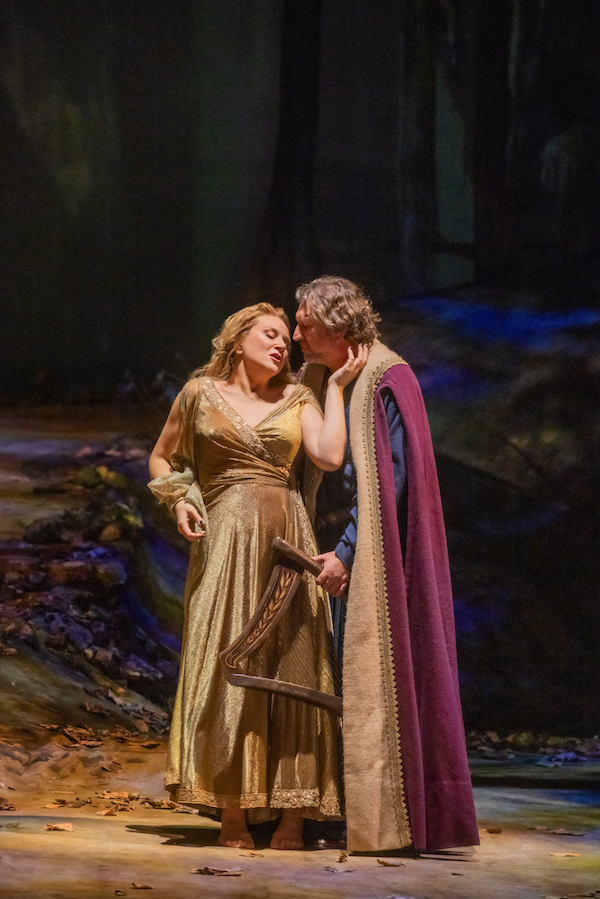
6. Wagner: Tannhäuser: Metropolitan Opera.
The first performance of the season of Tannhäuser will go down in the annals of the Metropolitan Opera for being stopped not once, but twice, by climate protestors. Musically, however, it never veered off course. Andreas Schager’s full-bodied tenor and dashing persona were ideal for the role. Equally impressive was Christian Gerhaher’s company debut as Wolfram. Donald Runnicles led a masterly reading of Wagner’s colorful score. For traditionalists, the opportunity to again experience Otto Schenk’s hyper-romantic, realistic production from 1977 made it a must see. (RP)
7. Music of Sibelius and Saariaho. Susanna Mälkki/Helsinki Philharmonic Orchestra.
There is no better conductor in classical music right now than Susanna Mälkki and this was a chance to hear her with the leading Finnish orchestra of which she has been music director. They did not disappoint, playing a magnificent Sibelius Symphony No. 2, alongside flutist Claire Chase in her phenomenal performance of Kaija Saariaho’s Aile du songe. (GG)
8. Vaughan Williams and Hailstork cantatas. David Hayes/New York Choral Society.
With turbulence at home and abroad in the headlines, NYCS paired eloquent appeals for understanding and peace by a pre-World War II Englishman and a present-day African-American in this June program. Separated by 85 years and an ocean, Ralph Vaughan Williams’s Dona Nobis Pacem and Adolphus Hailstork’s A Knee on the Neck were notable not so much for their differences as for their similarities. In each case, horrible events were recalled obliquely, at a poet’s remove. Mingled with them, and ultimately prevailing, was a vision of hope and kindness. All came wrapped in a large chorus, vocal soloists, a robust orchestra surging with brass, and contemporary tonal harmonies. A superbly executed concert that lingered in the heart and mind. (DW)
9. Music of Mahler and Bartók. Rafael Payare/Orchestre Symphonique de Montreal with Yefim Bronfman.
There has been very little Mahler in New York the past few years, which is very much a puzzlement, but the performance of his Fifth Symphony from the Montreal Symphony Orchestra and Rafael Payare was stunning enough to maintain memories for a few more seasons. Add to it a brilliant, willful performance of Bartók’s Piano Concerto No. 2 by Yefim Bronfman, and you have one of the greatest concerts of the year. (GG)
10. Rachmaninoff: Symphonic Dances. Semyon Bychkov. New York Philharmonic.
The composer’s 150th anniversary year began with a bang in January (see above) and neared the exit in December with a dazzlingly vital performance of his last composition, upstaging very good renditions of music by Richard Strauss and Bruce Dessner earlier in the evening. Chugging rhythms and soulful interludes, Ravel-like sensuality in the waltz movement, and a finale in kaleidoscopic colors revealed a composer who was not only not burned out, but topping himself in many ways. (DW)
Honorable Mentions
The audience left Carnegie Hall humming “When Britain really ruled the waves” and with smiles on their faces after this delightful performance of Gilbert & Sullivan’s Iolanthe. Master Voices may be an amateur chorus, but they put on a first-class show. Ted Sperling led a cast of Broadway stars, headed by Christine Ebersole’s glamorous Fairy Queen, who made every double entendre zing and the music sparkle. (RP)
The Park Avenue Armory’s vast drill hall was transformed into a World War I field hospital, with tenor Jonas Kaufmann and pianist Helmut Deutsch surrounded by dancers portraying nurses and soldiers, performing Schwanengesang, the songs Schubert wrote in the shadow of his own death. Staged by Claus Guth, the eloquently sung and played performance, which took its English title “Doppelganger” from one of the songs, added a touching visual dimension to the songs’ meditations on love, loss and death. (DW)
The shame of a limited list is that it will always leave off worthy items, like the exceptional concert by Christian Thielemann and the Vienna Philharmonic Orchestra. Thielemann and the VPO are the leading contemporary partners in Bruckner, and their performance of the Eighth Symphony at Carnegie Hall showed their wonderful sound, their sense of dynamics and timbre, and Thielmann’s superb pace. Most important was the deep feeling of expressive meaning and power in the playing. (GG)
The new class of Ensemble Connect displayed their personalities and musicianship in their first season performance at Carnegie Hall. The players’ introductions to the works not only provided insights into the music being performed, but also what makes them tick as musicians. The young musicians’ work in schools across New York City’s five boroughs means ever more diverse audiences for their concerts. It was no surprise that “sold-out” was plastered across the marquee for this concert. (RP)
Ian Niederhoffer has a taste for the eclectic, which was on full display in this December concert entitled “Melodrama,” which featured music of Korngold, Saariaho, and Milhaud. In just a few years, Parlando, the chamber orchestra which Niederhoffer, founded and conducts, has found its audience. He makes the most complex of music approachable and entertaining to audiences as diverse as the music he programs. The emotional core of this concert was the late Finnish composer Kaija Saariaho’s Graal Théâtre with the superb Geneva Lewis as violinist soloist. (RP)
Best Events for Genuine Diversity
This category finished in a tie between the Metropolitan Opera, an organization just beginning to culturally diversify its offerings, and the Detroit-based Sphinx Organization, founded to promote exactly that. Sphinx claims over 100,000 minority musicians reached by its school and mentoring programs. In October, the Sphinx Virtuosi, its all-star ensemble of 18 string players that tours the U.S. and abroad, gave a strong account of itself with mostly new compositions for an animated Carnegie Hall audience full of young people. The following month, the Met gave a full-dress production, with Afrofuturist elements, to a neglected American classic, Anthony Davis’s X: The Life and Times of Malcolm X, with a fervent Will Liverman in the title role. (DW)
Best AI-Futurist Opera
What musician or visual artist doesn’t wonder if their works will be appreciated 300 years from now? In The Artwork of the Future, a 70-minute opera by composer Eric Moe and librettist Rob Handel, a conceptual artist and his songwriting girlfriend travel in a time machine to the Guggenheim Museum of the future, and happily find his art on the walls and her music being piped in. There’s just one problem: The highly appreciative audience consists entirely of…robots. This visually dazzling sci-fi production from Fresh Squeezed Opera, premiered in May, used catchy rhythms and singable atonal tunes to muse wittily on the purpose of art and the fate of the human race. (DW)
Most Approachable Virtuoso
The forced gaiety of so much classical-music marketing these days is apparently intended to counteract people’s belief that classical means cold and intimidating. But there’s an easier way to do that: just book violinist Rachell Ellen Wong to play Sarasate’s uber-brilliant Carmen Fantasy, as the American Classical Orchestra did in May. Relaxed and smiling, this early-music specialist with a secret identity as a virtuoso looked to be having the time of her life, slipping into octaves, harmonics, and left-hand pizzicato as easily as a favorite pair of jeans. But comfortable didn’t mean sloppy—Wong’s warm yet clear tone and pinpoint intonation even in the highest positions matched contemporary descriptions of the Spanish violinist’s own playing. (DW)
Most Splendid Exit
This year, Lincoln Center for the Performing Arts, Inc. canceled the Mostly Mozart Festival after fifty-plus summers in Philharmonic/Fisher/Geffen Hall, to the dismay of many observers (including GG). In the festival’s final program in August, music director Louis Langrée, himself ending 25 years on the MMF podium, led his troops out with heads held high in memorable performances of Mozart’s final trilogy of symphonies, from the grace of No. 39 through the turbulence of No. 40 and into the brilliant sunshine of No. 41, “Jupiter,” with its fugal finale. The audience stood and cheered and wouldn’t let the musicians go until they repeated the “Jupiter”’s mind-blowing last pages. (DW)
